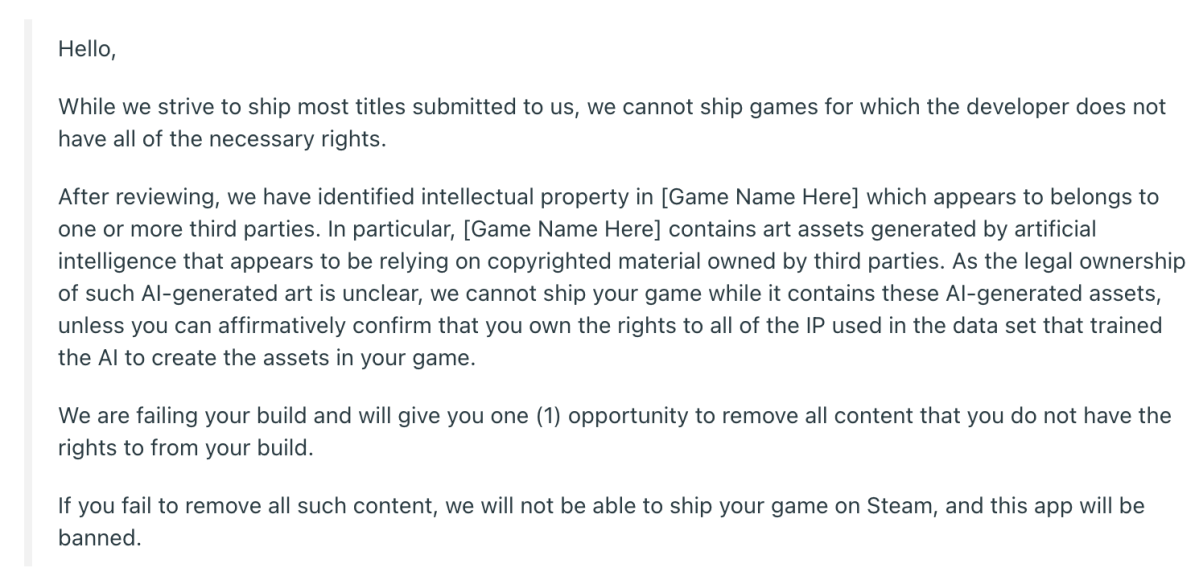Steam, the largest online video game marketplace, is reportedly declining to publish games that use AI-generated artwork.
Where did it all come from? In early June, a game developer on Reddit shared that they attempted to release a game on Steam about a month ago, with a few elements of the game being AI-generated.
The developer claimed that after submitting his game to Steam, he received a warning message about AI-generated artwork in his game.
“In particular, [game name here] contains art assets generated by artificial intelligence that appears to be relying on copyrighted material owned by third parties,” the message from Steam read. “If you fail to remove all such content, we will not be able to ship your game on Steam, and this app will be banned.”

The user stated that they quickly made some improvements to those AI art pieces by hand and resubmitted. However, they received a second message from Steam, and in the end their game was rejected.
“At this time, we are declining to distribute your game since it’s unclear if the underlying AI tech used to create the assets has sufficient rights to the training data,” Steam’s message reportedly read.
Steam responds
In late June, a similar case surfaced on Reddit. Another developer claimed in a post that they “lost almost all interest” in AI technology after Steam allegedly declined to publish their video game due to “legal uncertainties.”
“Not only do I feel like I wasted time making another interesting game with colourful scenery and characters, I have to go back to the way I made games before that, over half a year ago. Which is not only tiresome, the end result is far from what I’d like it to be,” the user complained.
Sure enough, both cases attracted much discussion among the gaming community, with most users taking issue with Steam’s seemingly ‘blanket ban’ approach at AI-generated content.
“Violations of copyright are penalised in an absurdly harsh manner. A few thousand sales by Valve [Steam’s parent company] could result in liability that exceeds the value of the entire company,” explained one user.
Steam/Valve is likely taking such an approach in order to avoid lawsuits related to AI-generated art. Early this year, there have been class-action lawsuits filed by traditional artists against AI art generators Stable Diffusion and Midjourney. The AI art tools are being sued for allegedly stealing work made by artists without their consent.
Users on social media described Steam’s current strategy as “untenable”, and pointed out that other existing games in the market have AI-generated elements scattered throughout the game.
In a statement to The Verge, Valve says that the company’s goal is “not to discourage the use of [AI] on Steam; instead, we’re working through how to integrate it into our already-existing review policies.”
“… while developers can use these AI technologies in their work… they can not infringe on existing copyrights,” Valve’s statement reads.
AI-generated artwork continues to be a subject of much contention. So, Valve deciding to adopt an aggressive stance on this issue to dodge million-dollar lawsuits, is perhaps understandable.





